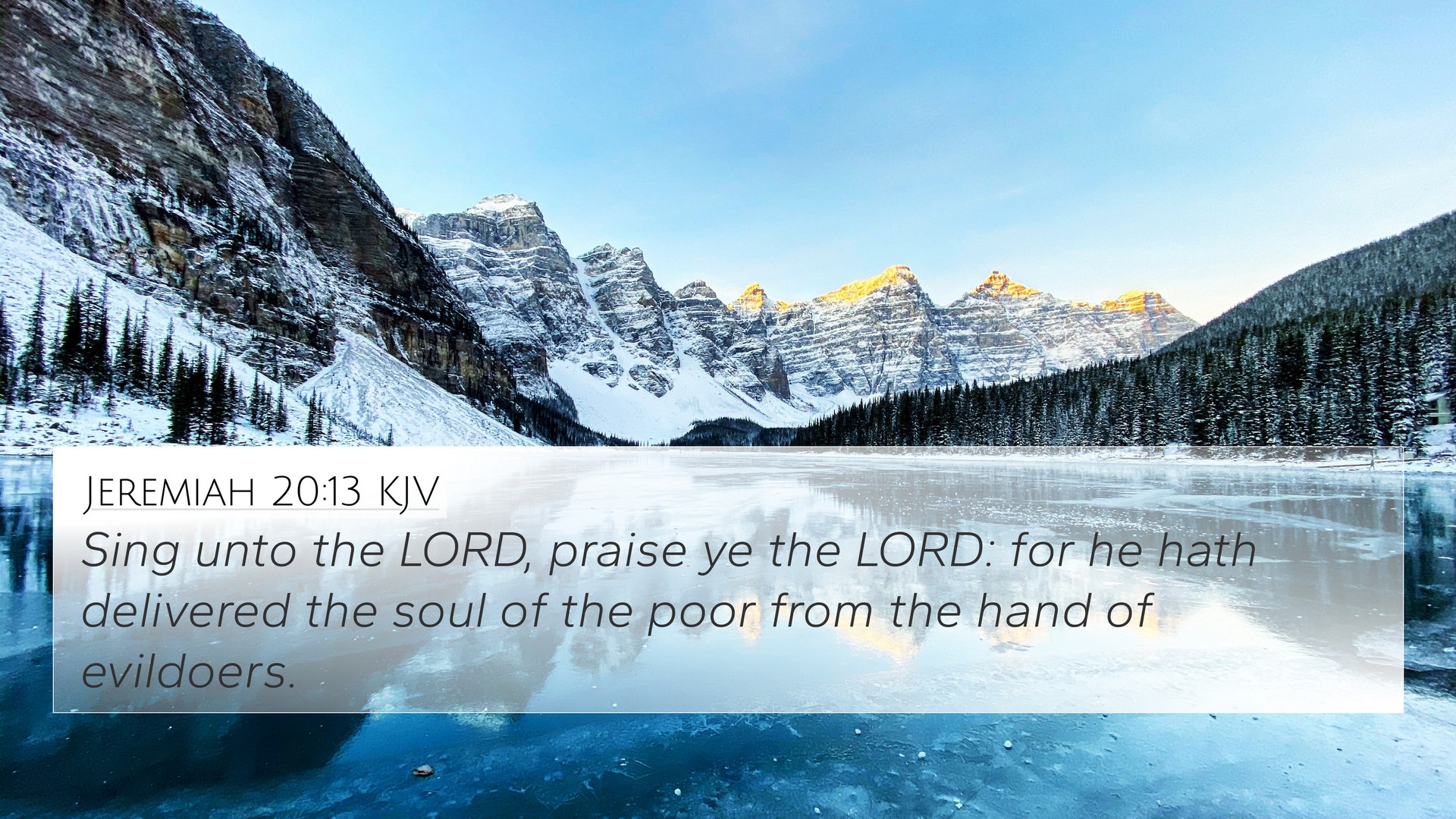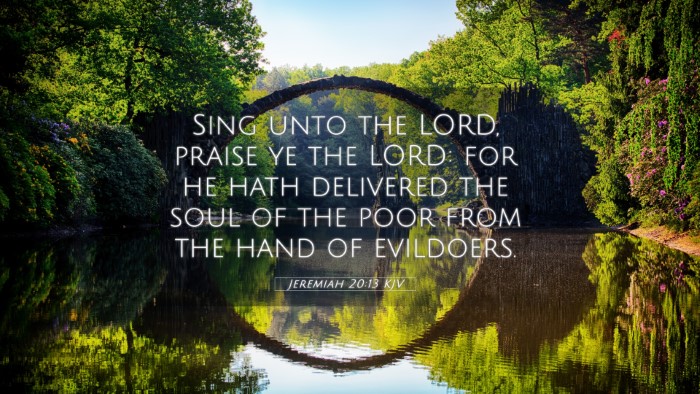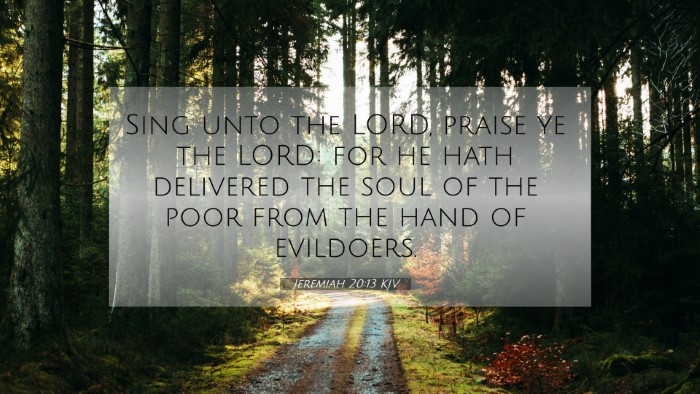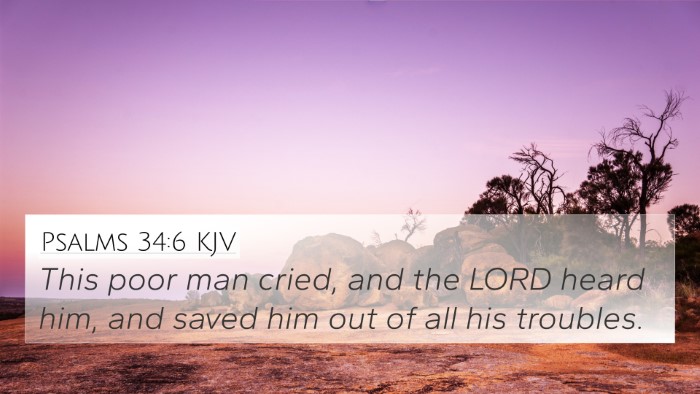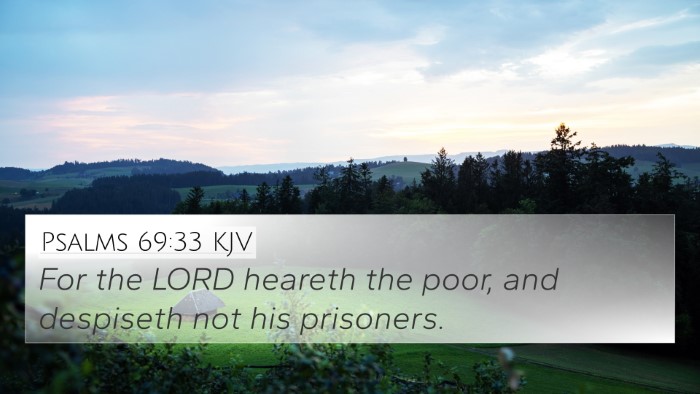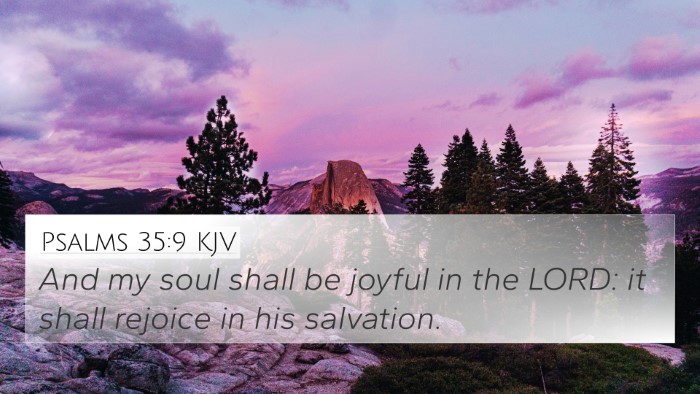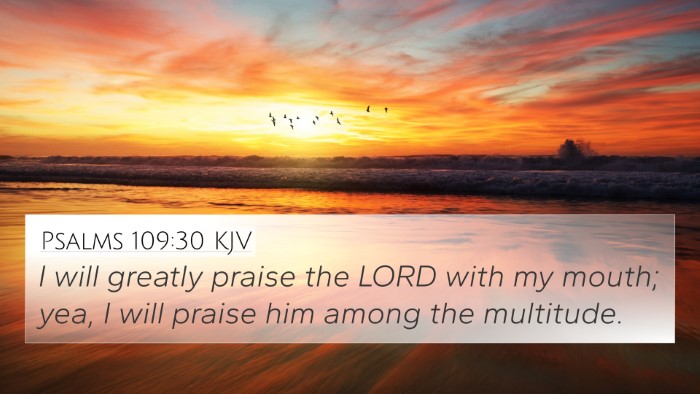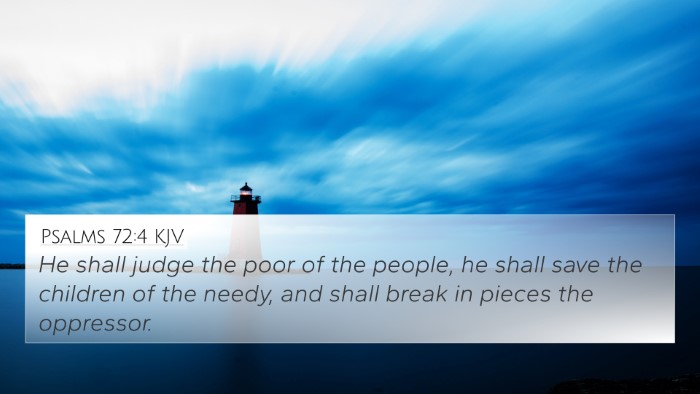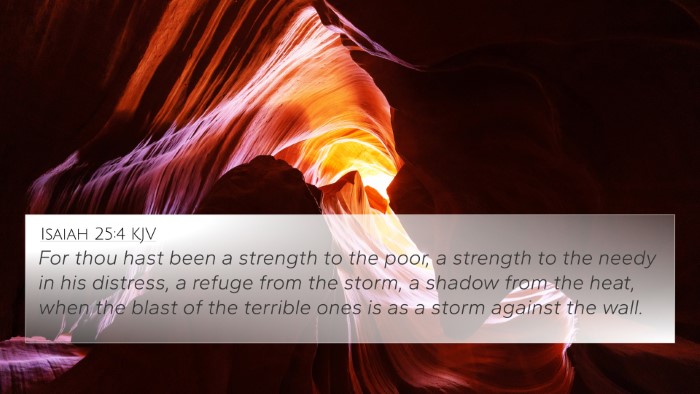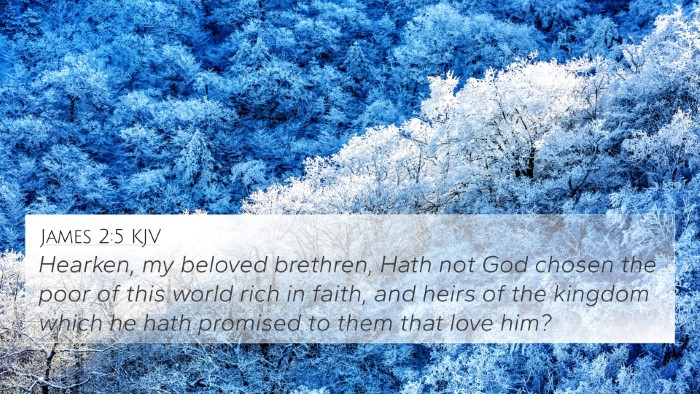Understanding Jeremiah 20:13
Jeremiah 20:13 states, "Sing unto the Lord, praise ye the Lord: for he hath delivered the soul of the poor from the hand of evildoers." This verse captures the essence of praise and deliverance. It is a call to recognize God's power and mercy, especially in times of distress.
Meaning and Interpretation
In this verse, Jeremiah expresses a profound gratitude towards God for His saving grace. As a prophet, Jeremiah faced immense opposition, yet he found solace in the Lord's deliverance. This duality of struggle and faith resonates deeply throughout the scriptural narrative.
Key Insights from Public Domain Commentaries
Matthew Henry's Commentary
Matthew Henry emphasizes the importance of singing praises to God. He notes that this act of worship is a response to God's providential care, particularly when He rescues the oppressed. The joy of deliverance inspires communal worship, reflecting both individual and collective experiences of grace.
Albert Barnes' Commentary
Albert Barnes highlights the context of Jeremiah's suffering and the joy that follows God's intervention. He stresses that praising God is an essential reaction to His intervention in human affairs, linking the verse to broader themes of hope and restoration found throughout Scripture.
Adam Clarke's Commentary
Adam Clarke points out that the "poor" mentioned in this verse serves as a representation of those in distress. Clarke elaborates on the theme of God as a savior who stands up for the marginalized and oppressed, portraying a God who is intimately involved in human struggle and triumph.
Bible Verse Cross-References
This verse connects with several other scriptures that echo themes of deliverance and worship. Here are some key cross-references:
- Psalms 34:6: "This poor man cried, and the Lord heard him, and saved him out of all his troubles."
- Psalms 107:2: "Let the redeemed of the Lord say so, whom he hath redeemed from the hand of the enemy."
- Isaiah 41:17: "When the poor and needy seek water, and there is none, and their tongue faileth for thirst, I the Lord will hear them."
- Luke 1:52-53: "He hath put down the mighty from their seats, and exalted them of low degree. He hath filled the hungry with good things; and the rich he hath sent empty away."
- Romans 15:9: "And that the Gentiles might glorify God for his mercy; as it is written, For this cause I will confess to thee among the Gentiles, and sing unto thy name."
- Revelation 5:9: "And they sung a new song, saying, Thou art worthy to take the book, and to open the seals thereof: for thou wast slain, and hast redeemed us to God by thy blood."
- 2 Samuel 22:28: "And the afflicted people thou wilt save: but thine eyes are upon the haughty, that thou mayest bring them down."
Connections Between Bible Verses
The connections between these verses reveal a tapestry of God's faithfulness. They illustrate how God consistently delivers the oppressed and encourages His people to respond with praise. This thematic continuity exemplifies how biblical texts dialogue with one another and reinforce the message of salvation.
Thematic Bible Verse Connections
The themes of deliverance, praise, and the care for the marginalized are prevalent throughout the Bible. By studying Jeremiah 20:13 in conjunction with these references, readers can gain a clearer understanding of God’s character and His ongoing work in the world.
Cross-Referencing Biblical Texts for Deeper Understanding
Utilizing tools for Bible cross-referencing can enhance one’s study. Cross-reference Bible study methods promote discovering inter-Biblical dialogue, especially regarding themes of God's deliverance and human response through praise.
How to Use Bible Cross-References
When engaging with scripture, ask yourself:
- What verses are related to Jeremiah 20:13?
- How do themes of deliverance persist throughout the Bible?
- What are the similarities between this verse and those about the oppressed?
- Which New Testament verses echo the sentiments expressed by Jeremiah?
Conclusion
Jeremiah 20:13 serves as a reminder to believers to celebrate God's faithfulness and deliverance through praise. By exploring related verses and their connections, one can appreciate the broader narrative of hope and affirmation found in scripture. This verse not only reflects individual experiences but also speaks to the communal joy of worshiping a God who rescues and restores.
